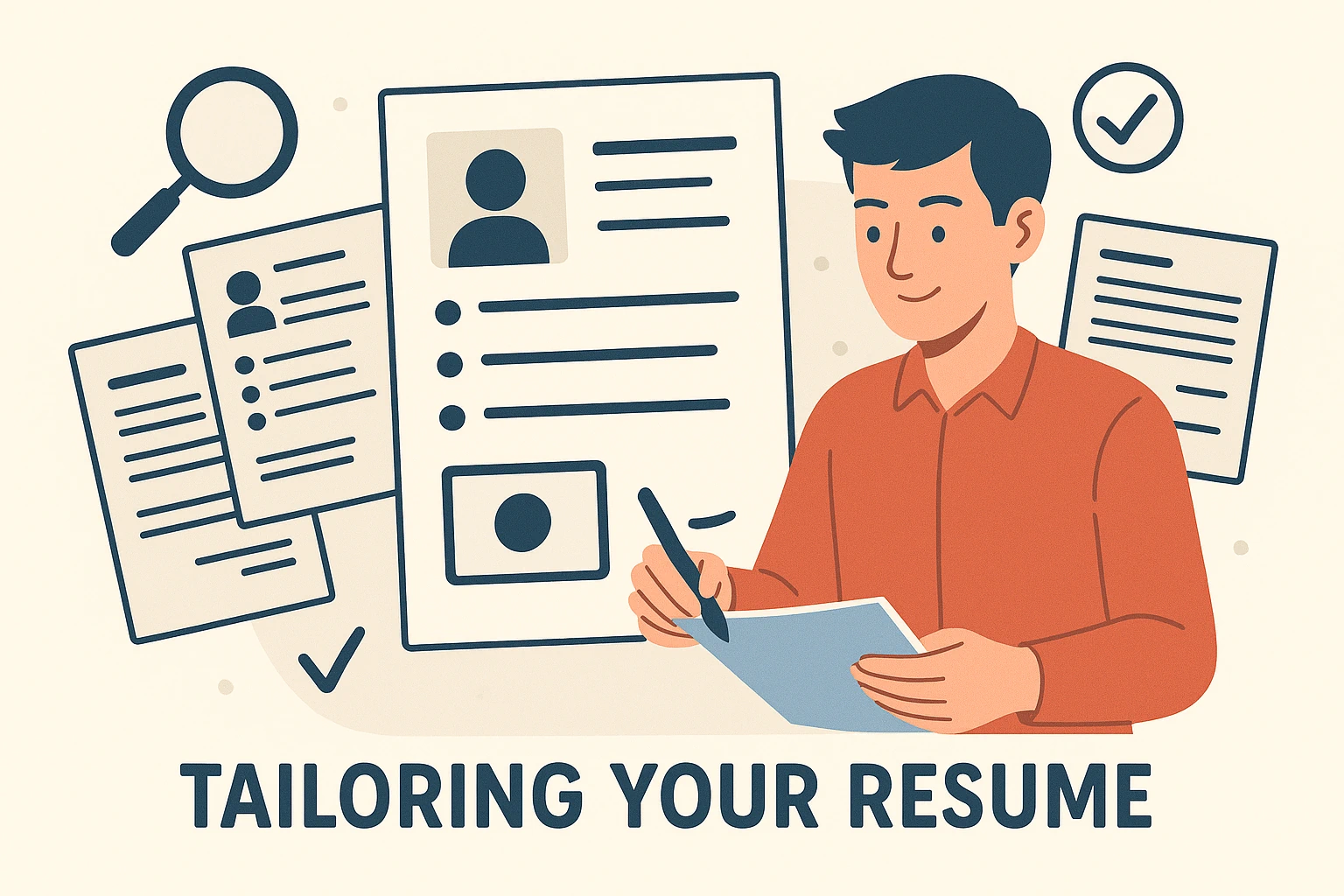1. Tackling Job Rejections
Job hunting can often feel like a roller coaster ride, filled with highs of hopeful prospects and lows of rejection. But don’t let the fear of rejection deter you. In fact, job rejections can be a powerful tool for growth and improvement. In this article, we’ll explore how to handle job rejections and use them as stepping stones towards your dream job.
Job hunting is an integral part of our professional lives. Whether you’re a fresh graduate or an experienced professional, everyone has faced or will face job rejections at some point. It’s a common part of the process, but that doesn’t make it any less disappointing.
However, it’s important to remember that rejection is not a reflection of your worth. It’s merely a sign that the particular role wasn’t the right fit for you. The key is to learn from these experiences and use them to grow stronger in your job hunting journey.
In our comprehensive guide on Job Hunting and Interview Preparation, we’ve covered various aspects of the job search process. This article will focus on one of the most challenging parts – dealing with job rejections.
2. Understanding Job Rejections
2.1. Common Reasons for Job Rejections
Job rejections can stem from a variety of reasons, and understanding these can help you better navigate your job hunting journey. Here are some common reasons:
2.1.1. Overqualification
Sometimes, you might be rejected because you’re overqualified for the position. Employers might fear that you’ll get bored quickly or leave as soon as a better opportunity comes along. While it’s frustrating to be turned down for being too qualified, remember that it’s important to find a job that challenges and engages you.
2.1.2. Lack of Experience
On the other end of the spectrum, you might be rejected for not having enough experience. This is particularly common for entry-level roles where many candidates are fresh graduates. If lack of experience is a recurring theme in your job rejections, consider seeking internships, volunteering, or further training to boost your experience.
2.1.3. Cultural Fit
Cultural fit is a crucial factor for many employers. They’re not just looking for someone who can do the job, but someone who will mesh well with the team and the company culture. If you’re rejected because of cultural fit, it might be a blessing in disguise. You want to work in an environment where you feel comfortable and valued.
2.1.4. Better-suited Candidates
Sometimes, it’s simply a case of there being other candidates who are a better fit for the role. This doesn’t mean you’re not capable; it just means someone else was a closer match to what the employer was looking for. In such cases, don’t be disheartened. Your perfect job could still be out there waiting for you.
2.2. The Emotional Impact of Job Rejections
Job rejections can be emotionally challenging. It’s normal to feel disappointed, frustrated, or even upset. However, it’s crucial to not let these feelings deter you from your job hunting journey. Remember, every rejection is one step closer to the right job.
2.2.1. Dealing with Disappointment
It’s okay to feel disappointed after a job rejection. Allow yourself to feel these emotions, but don’t dwell on them. Instead, use them as fuel to push forward and improve. Remember, it’s not about how many times you fall, but how many times you get back up.
2.2.2. Maintaining Self-esteem
Rejections can take a toll on your self-esteem. But remember, a job rejection is not a reflection of your worth. It’s merely a business decision. Maintain your self-esteem by focusing on your strengths and achievements. Celebrate your wins, no matter how small they may seem.
In the next section, we’ll explore strategies to bounce back from job rejections and come back stronger. Stay tuned!
3. Strategies to Bounce Back from Job Rejections
Bouncing back from job rejections can be tough, but with the right strategies, you can turn these setbacks into comebacks. Here’s how:
3.1. Taking Time to Process the Rejection
It’s important to give yourself time to process the rejection. It’s okay to take a day or two to regroup and gather your thoughts. Use this time to reflect on the experience and identify what you can learn from it. Remember, it’s okay to feel disappointed, but don’t let it deter you from your job hunting journey.
3.2. Seeking Feedback from the Employer
If possible, ask the employer for feedback. While not all employers will provide feedback, it doesn’t hurt to ask. The feedback can provide valuable insights into areas you can improve on for future interviews. This is a crucial step in your interview preparation process.
3.3. Reflecting on the Experience and Identifying Areas for Improvement
Reflect on the interview process and your performance. Were there questions that stumped you? Were you able to effectively communicate your skills and experiences? Identifying these areas for improvement can help you perform better in future interviews. Use this as an opportunity to refine your interview preparation strategies.
3.4. Maintaining a Positive Mindset
Maintaining a positive mindset is crucial when dealing with job rejections. Instead of seeing it as a failure, view it as an opportunity to learn and grow. Remember, the right job is out there for you, and each rejection brings you one step closer to it. Keep your spirits high and continue your job hunting with renewed vigor.
In the next section, we’ll explore how to turn rejections into opportunities. Stay tuned!
4. Turning Rejections into Opportunities
Job rejections, while disappointing, can be turned into opportunities for growth and learning. Here’s how you can make the most out of these situations:
4.1. Learning from the Experience
Every job rejection offers a unique learning opportunity. Reflect on the feedback you received and the overall interview experience. What could you have done differently? What did you do well? Use these insights to improve your future job applications and interviews.
4.2. Expanding Job Search Strategies
A job rejection might be a sign that you need to diversify your job search strategies. Are you relying too heavily on job boards? Consider networking, attending industry events, or leveraging social media platforms like LinkedIn to discover new opportunities. You can learn more about this in our Job Hunting guide.
4.3. Networking and Building Connections
Sometimes, a rejection can lead to unexpected opportunities. The hiring manager might remember you for future roles, or you might connect with someone else at the company. Keep building and nurturing these professional relationships.
4.4. Building Resilience
Job rejections can help you build resilience, a crucial skill in both your professional and personal life. Resilience can help you navigate future challenges with grace and strength.
4.5. Refining Your Career Goals
Finally, job rejections can help you refine your career goals. They can prompt you to reassess what you truly want in a job and a career, helping you find a better fit in the long run.
Remember, every rejection is a step forward in your job hunting journey. Keep learning, keep improving, and keep going. Your dream job is out there, and with persistence and resilience, you’ll find it.
Key Takeaways
Here are the main points to remember from this article:
- Job rejections are a normal part of the job search process: They do not define your worth or capabilities.
- Understanding the reasons: Knowing why job rejections happen can help you identify areas for improvement.
- Positive mindset and resilience: These are crucial in the face of rejection. They help you bounce back and keep going.
- Learning experience: Use rejections as an opportunity to refine your job search strategies and career goals.
- The goal of job hunting and interview preparation: It’s not just to land a job, but to find a role that’s a good fit for you.
Remember, your perseverance and resilience will pay off in the end. For more tips and advice on job hunting and interview preparation, check out our comprehensive guides on Job Hunting and Interview Preparation.


